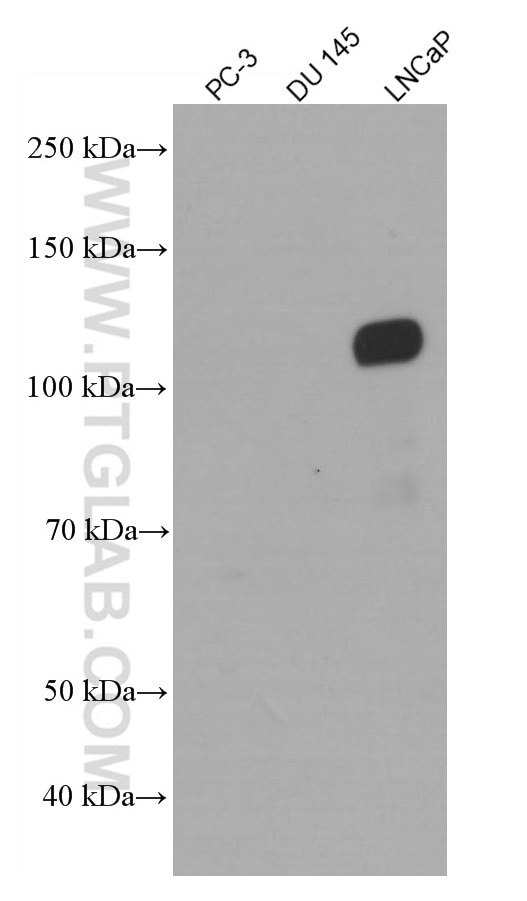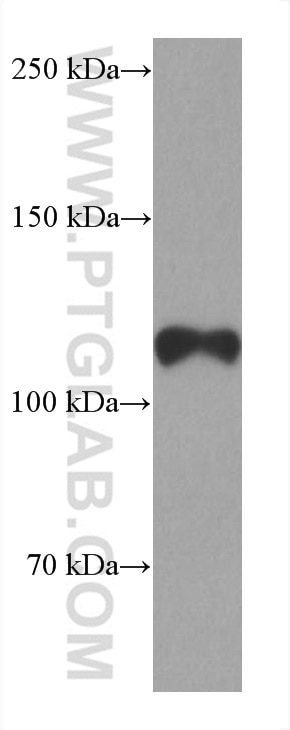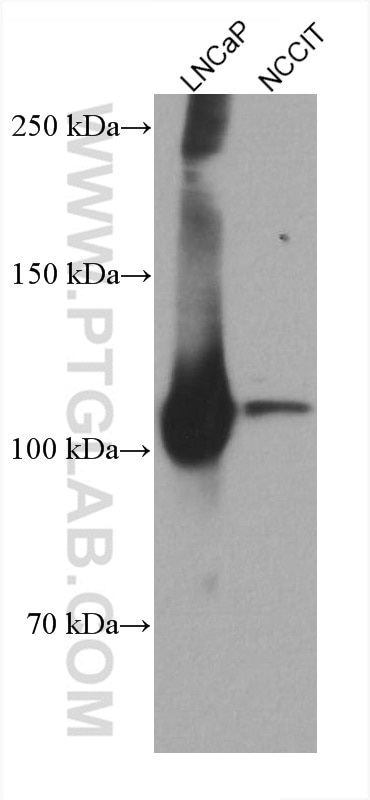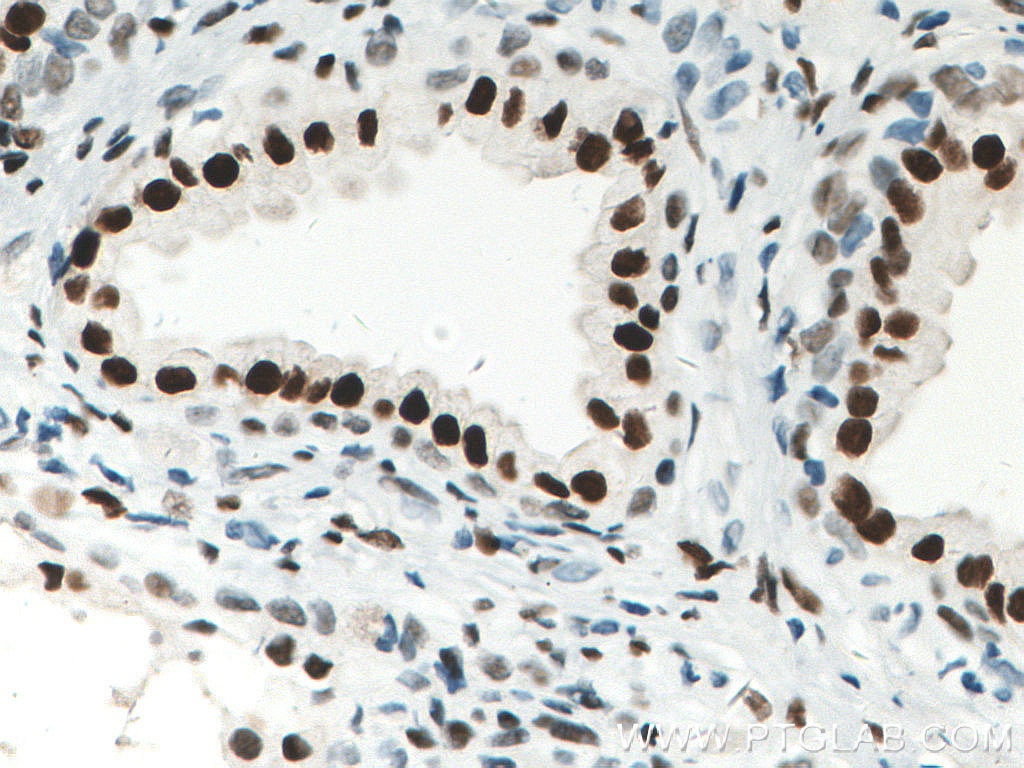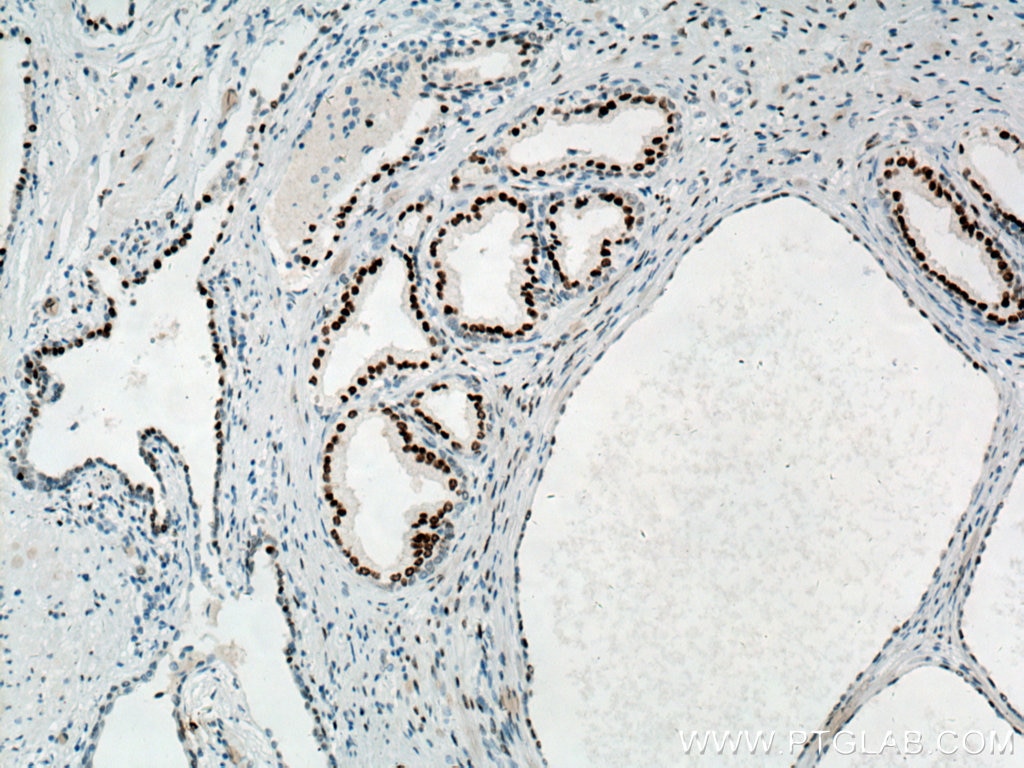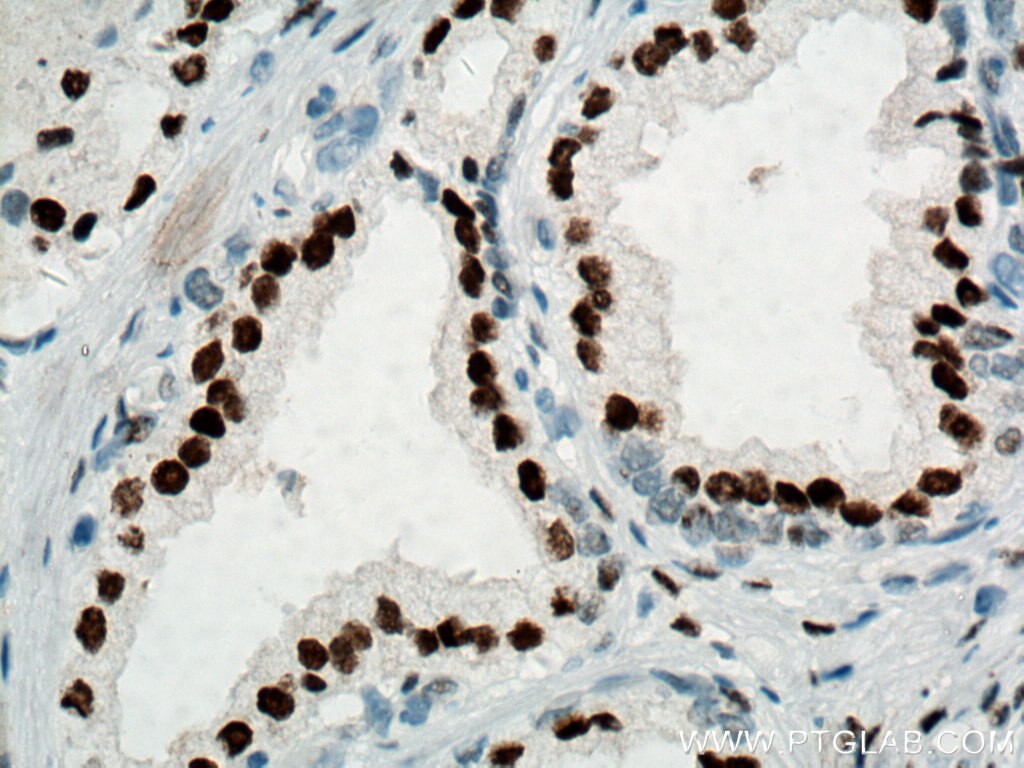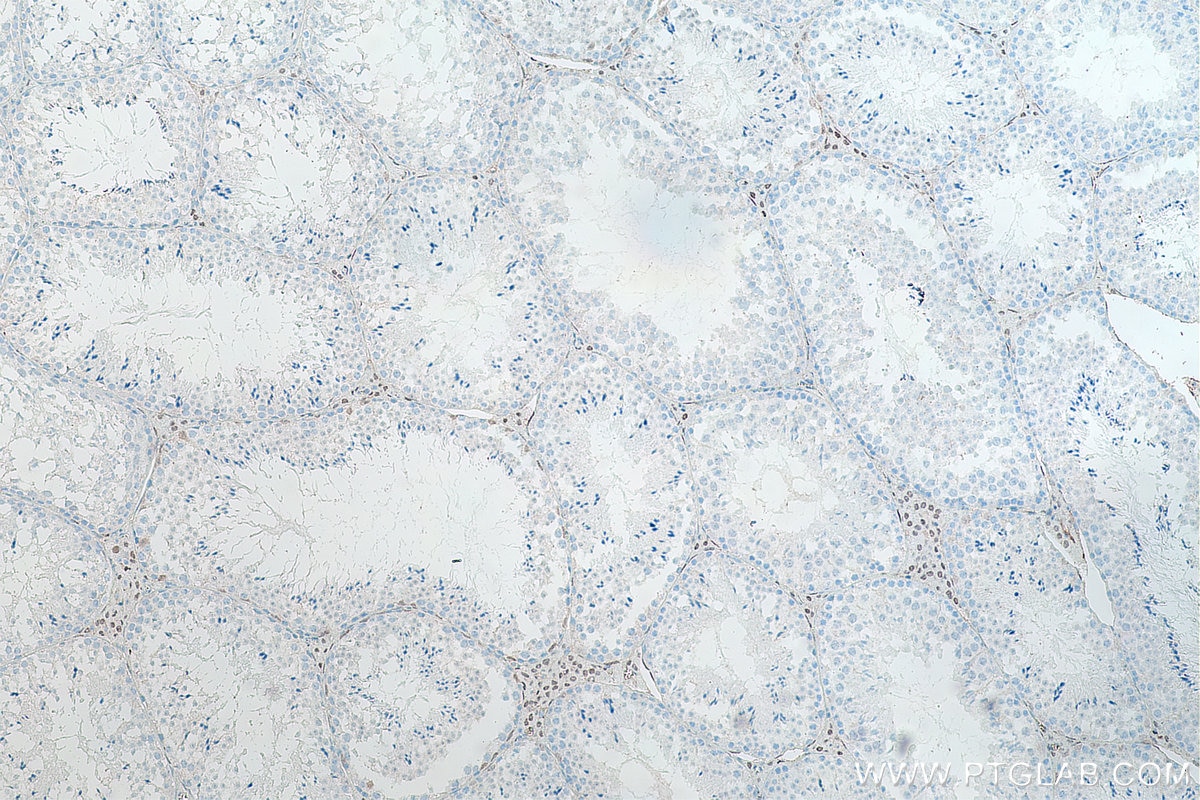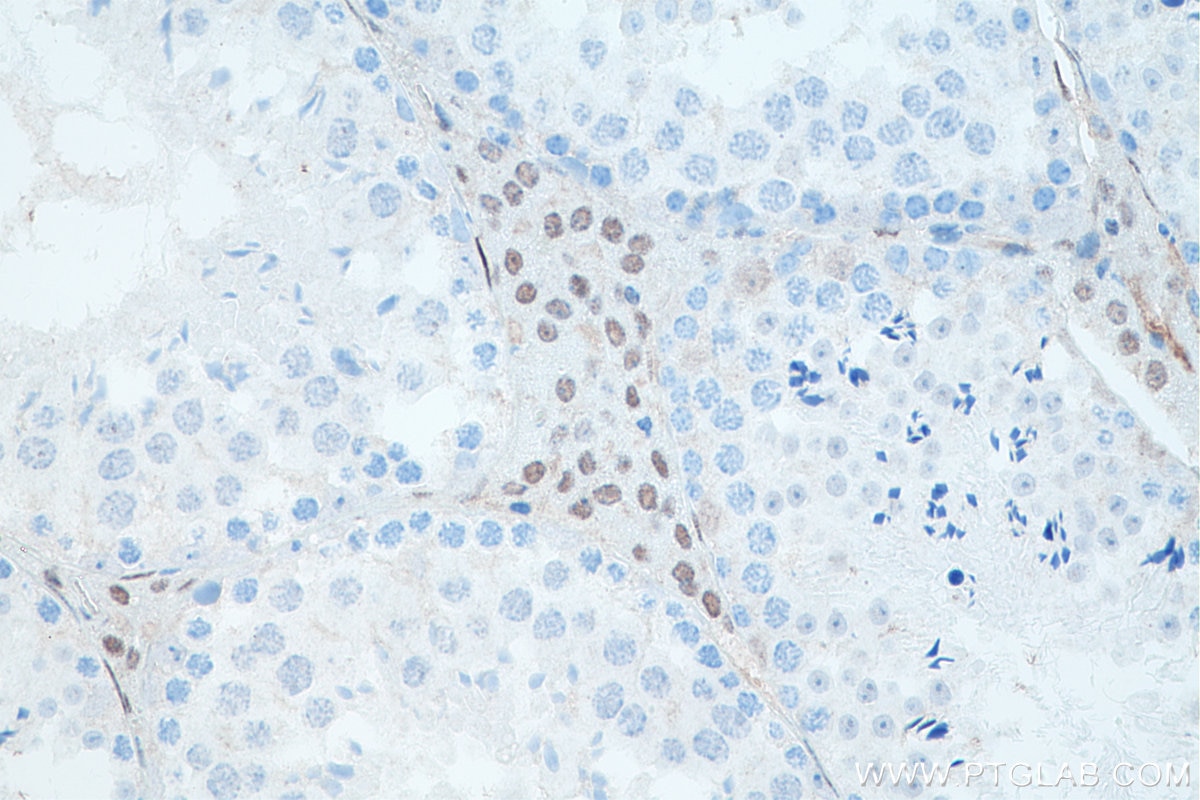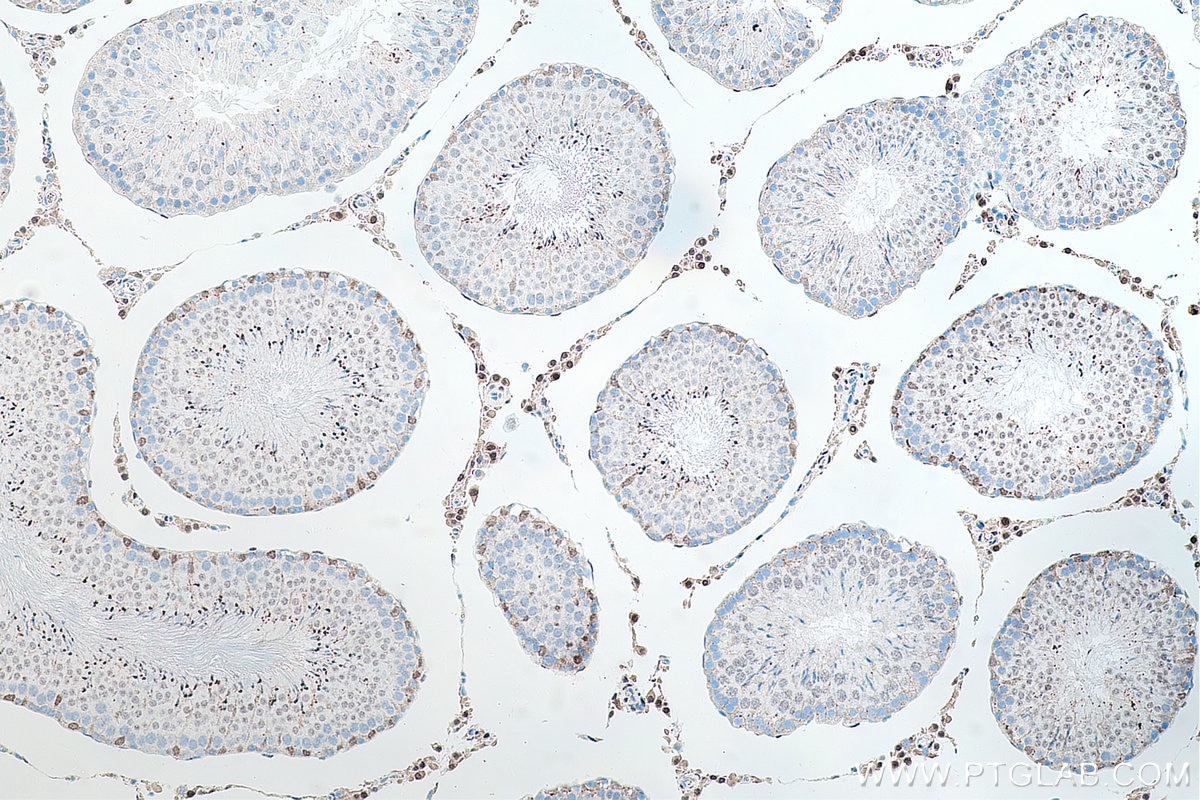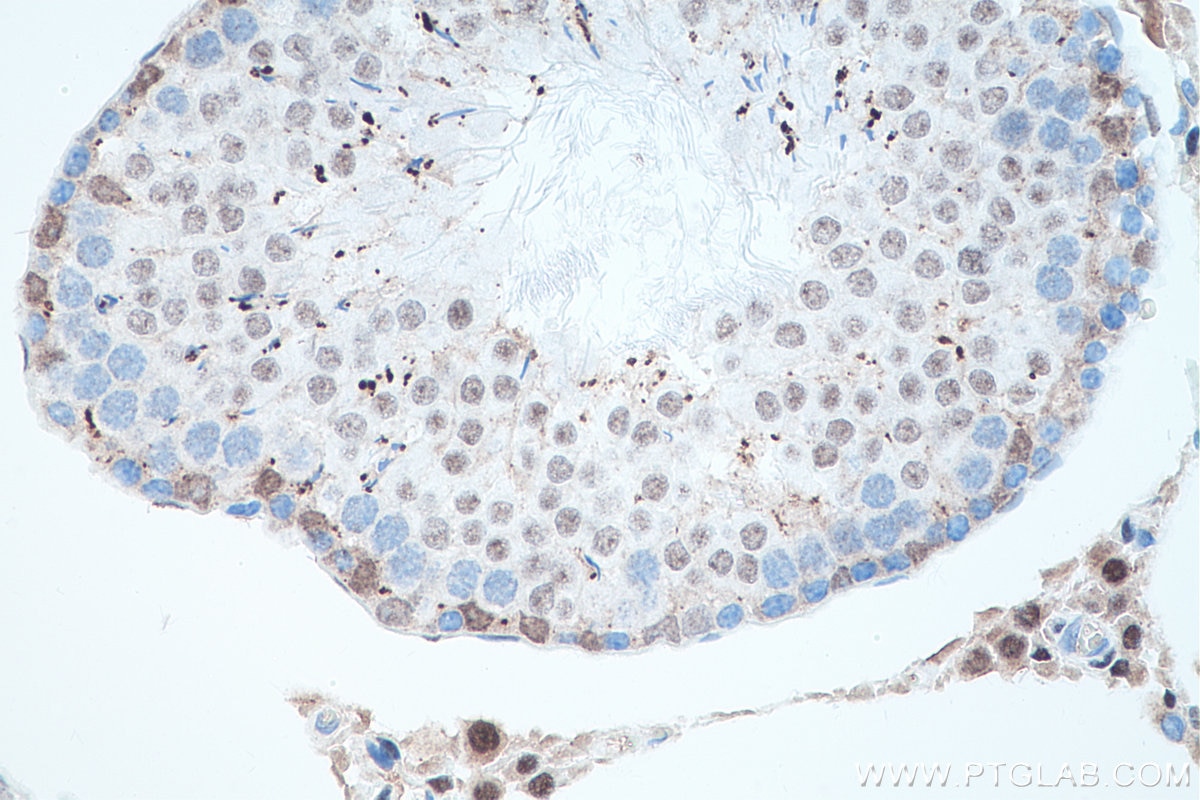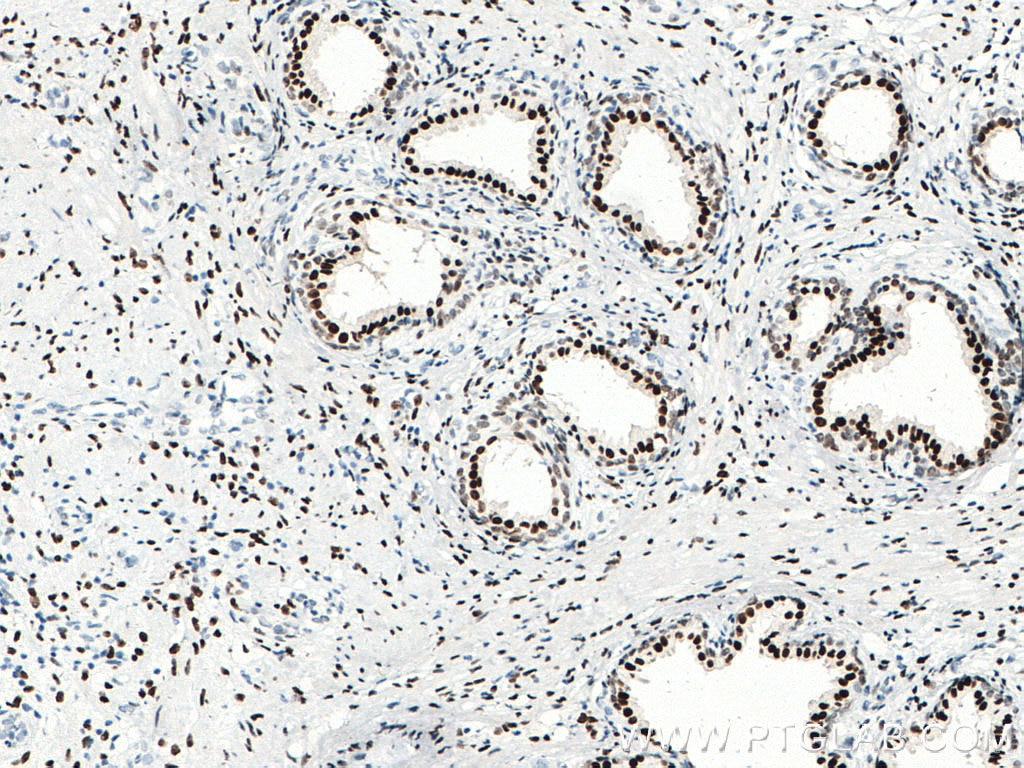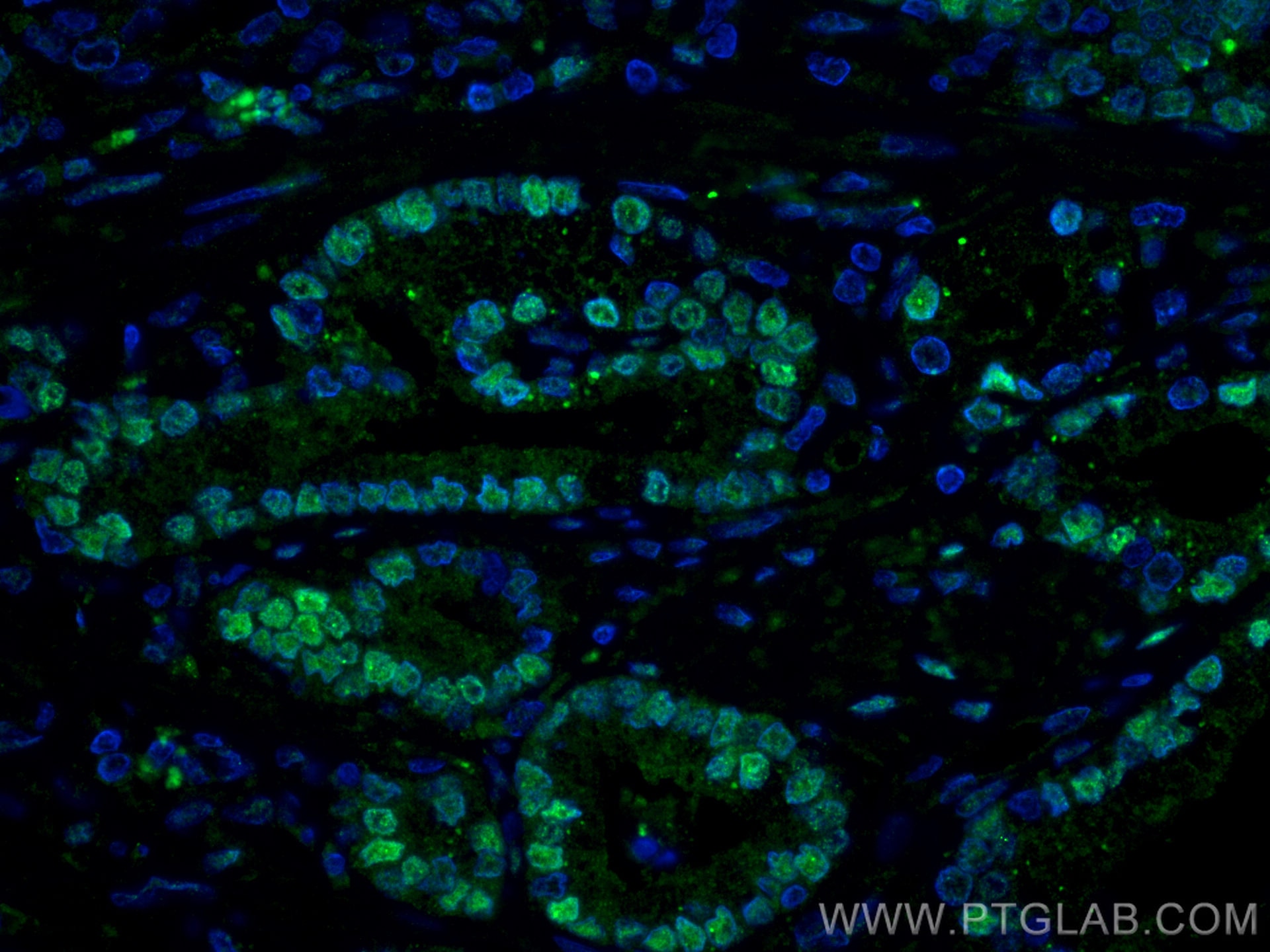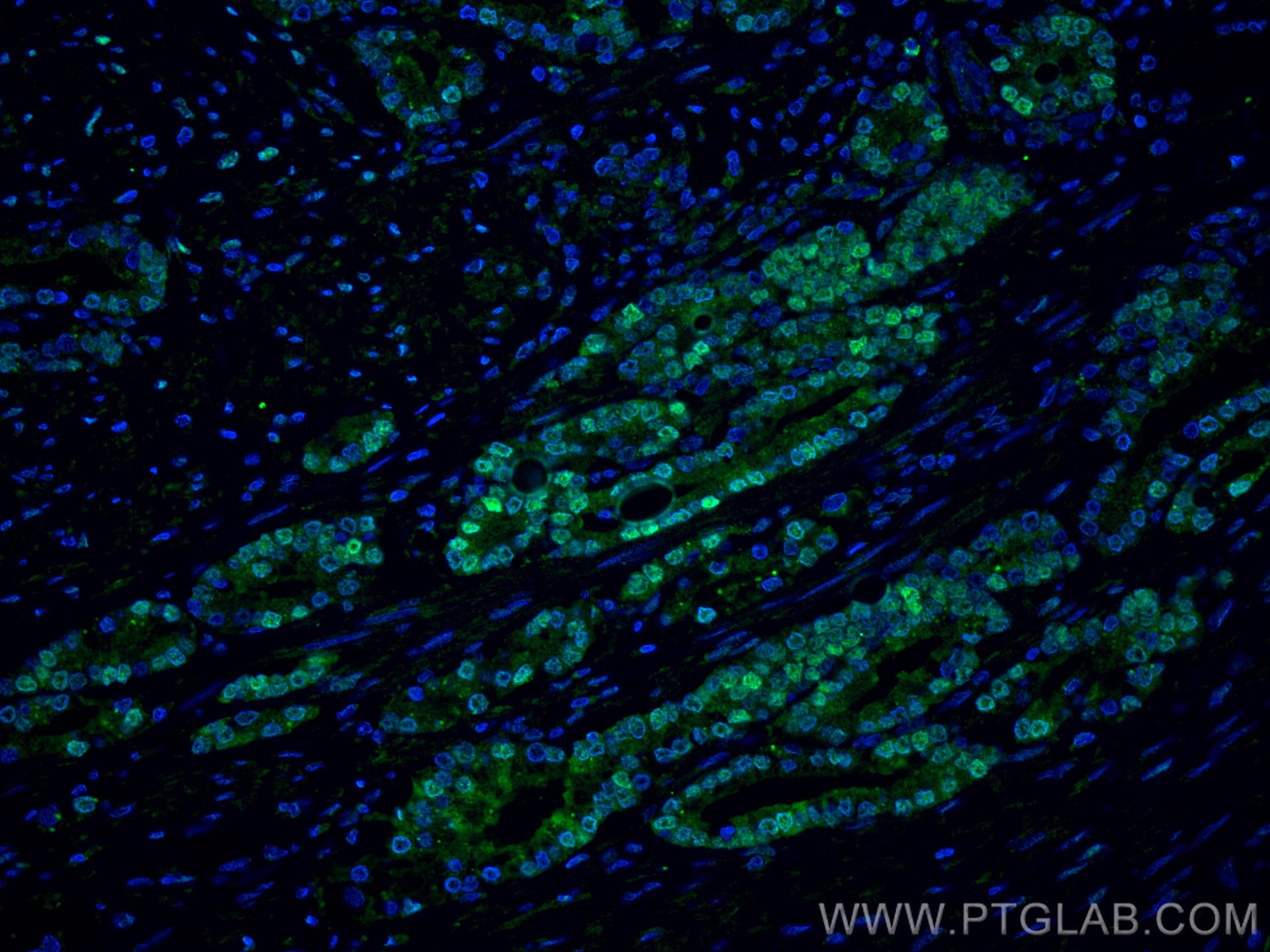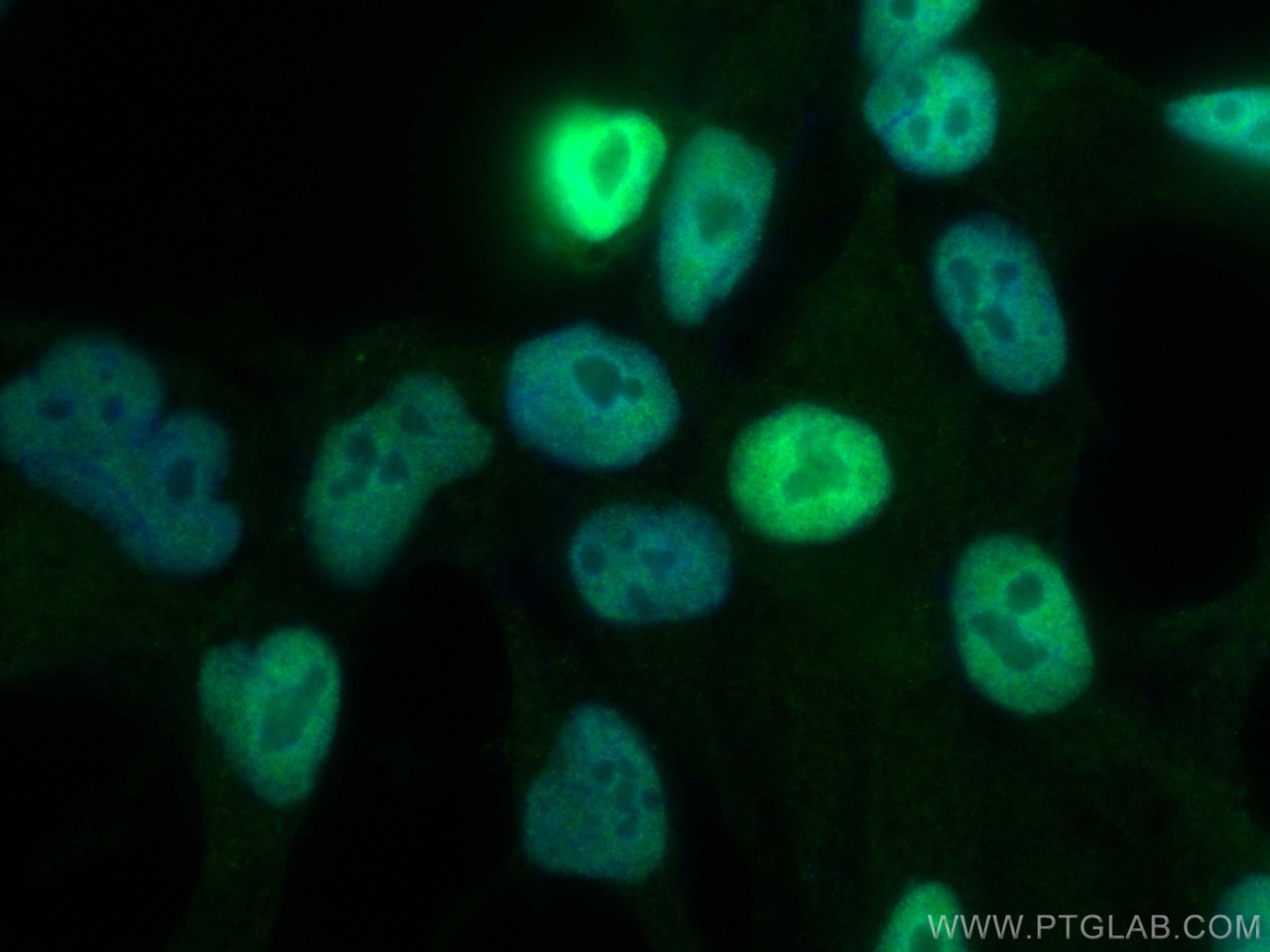Anticorps Monoclonal anti-androgen receptor
androgen receptor Monoclonal Antibody for WB, IHC, IF/ICC, IF-P, Indirect ELISA
Hôte / Isotype
Mouse / IgG2a
Réactivité testée
Humain, rat, souris
Applications
WB, IHC, IF/ICC, IF-P, ChIP, Indirect ELISA
Conjugaison
Non conjugué
CloneNo.
1F7C12
N° de cat : 66747-1-PBS
Synonymes
Galerie de données de validation
Applications publiées
| ChIP | See 1 publications below |
Informations sur le produit
66747-1-PBS cible androgen receptor dans les applications de WB, IHC, IF/ICC, IF-P, ChIP, Indirect ELISA et montre une réactivité avec des échantillons Humain, rat, souris
| Réactivité | Humain, rat, souris |
| Réactivité citée | Humain |
| Hôte / Isotype | Mouse / IgG2a |
| Clonalité | Monoclonal |
| Type | Anticorps |
| Immunogène | androgen receptor Protéine recombinante Ag17291 |
| Nom complet | androgen receptor |
| Masse moléculaire calculée | 914 aa, 99 kDa |
| Poids moléculaire observé | 110-120 kDa |
| Numéro d’acquisition GenBank | BC132975 |
| Symbole du gène | AR |
| Identification du gène (NCBI) | 367 |
| Conjugaison | Non conjugué |
| Forme | Liquide |
| Méthode de purification | Purification par protéine A |
| Tampon de stockage | PBS only |
| Conditions de stockage | Store at -80°C. 20ul contiennent 0,1% de BSA. |
Informations générales
AR, also named as DHTR and NR3C4, belongs to the nuclear hormone receptor family and NR3 subfamily. AR is a ligand-activated transcription factors that regulate eukaryotic gene expression and affect cellular proliferation and differentiation in target tissues. Transcription factor activity is modulated by bound coactivator and corepressor proteins. AR is activated, but not phosphorylated, by HIPK3. Defects in AR are the cause of androgen insensitivity syndrome (AIS), previously known as testicular feminization syndrome (TFM), which is an X-linked recessive form of pseudohermaphroditism due end-organ resistance to androgen. Defects in AR are the cause of spinal and bulbar muscular atrophy X-linked type 1 (SMAX1) which also known as Kennedy disease. Defects in AR may play a role in metastatic prostate cancer. Defects in AR are the cause of androgen insensitivity syndrome partial (PAIS) which also known as Reifenstein syndrome. AR exists various isoforms with MW 110-120 kDa and 75-80 kDa. (PMID: 19244107 )
